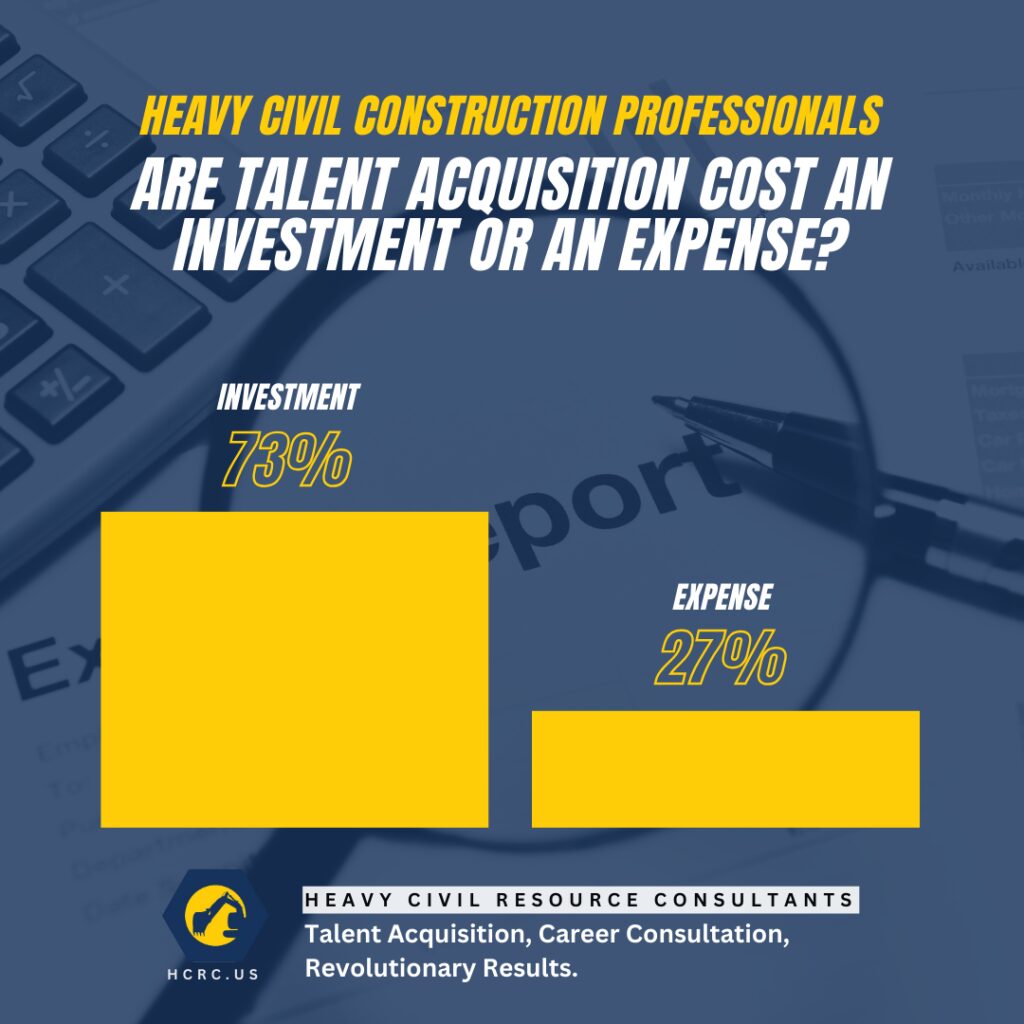
In the construction industry, where talent shortages are common and skilled labor is critical, talent acquisition costs often spark debates. Are these costs an investment in the future of your organization, or are they simply another line item in your budget?
A recent survey shows that 73% of industry professionals view talent acquisition costs as an investment, while 27% see them as an expense. This division of opinion sheds light on how different companies perceive the role of recruitment in their long-term success.

The Case for Talent Acquisition as an Investment
An investment is something that provides a return over time, and effective talent acquisition does just that. Skilled workers contribute directly to project completion, operational efficiency, and overall profitability. Consider these points:
- Strategic Growth: Hiring the right people ensures your business has the expertise and capacity to take on larger or more complex projects.
- Retention and Stability: Investing in talent acquisition often correlates with better retention rates. A strategic approach helps attract candidates who align with your company culture and goals, reducing costly turnover.
- Reputation Building: A well-structured recruitment process enhances your employer brand, making your company a sought-after workplace. This reputation, in turn, attracts top talent.
When viewed through this lens, the costs associated with recruitment—job postings, recruiter fees, onboarding, and training—are not just expenditures; they are stepping stones toward long-term profitability and success.
Why Some See it as an Expense
On the flip side, some companies struggle to justify recruitment costs, especially when faced with tight budgets. These organizations often see talent acquisition as a reactive process, necessary only to fill immediate gaps.
This perspective may stem from:
- Short-Term Budget Focus: Recruitment costs are easier to cut when leaders prioritize immediate cost savings over long-term gains.
- Lack of Metrics: Without clear tracking of recruitment ROI, it’s challenging to prove the tangible benefits of hiring initiatives.
- High Turnover Rates: If new hires frequently leave, it reinforces the perception that recruitment spending doesn’t yield a meaningful return.
Read more: Construction Employment Agencies: Guide and Tips
Shifting the Mindset
To move from viewing talent acquisition as an expense to seeing it as an investment, organizations must embrace strategies that focus on long-term outcomes. This includes aligning recruitment with business goals, using data to track hiring success, and continuously refining the hiring process.
Ultimately, the value of talent acquisition lies in its ability to drive business success by equipping your company with the right people. When approached strategically, it’s clear that these costs are an investment that pays dividends in the form of stronger teams, better projects, and increased profitability.
So, where does your company stand in this debate? Is talent acquisition helping you build a stronger future—or just filling today’s open positions?






